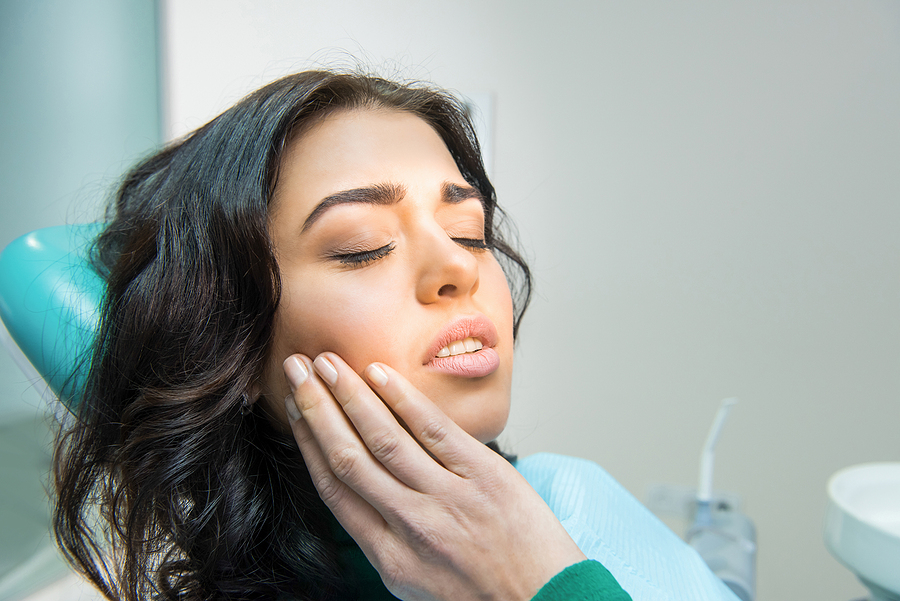When is a Tooth Extraction Necessary? Common Reasons Explained
Posted by Advanced Dentistry of Connecticut 2025-02-18

Tooth extractions can sound daunting, but sometimes they are the best solution for oral health issues. Whether it's a painful cavity, overcrowded teeth, or that pesky wisdom tooth making an appearance, understanding when extraction is necessary can be crucial for maintaining your overall dental wellness. If you're in Stratford, CT, and facing potential extractions, it’s essential to know what options are available and why certain decisions need to be made. Let’s dive into the common reasons behind tooth extractions and what you should expect throughout this process.
Understanding Tooth Extraction
Tooth extraction is the removal of a tooth from its socket in the bone. While it may sound intimidating, this procedure can often alleviate pain and prevent further dental issues.
Dentists usually recommend extractions when a tooth is beyond repair or poses risks to surrounding teeth. The decision is based on various factors, including severity of decay and overall oral health.
There are different types of extractions—simple and surgical. A simple extraction involves visible teeth that can be removed with forceps. Surgical extractions, on the other hand, are necessary for teeth that aren’t easily accessible due to conditions like impaction or fracture.
Understanding the reasons behind such decisions helps demystify the process. It’s essential to consult with your dentist about any concerns you might have regarding extractions in Stratford, CT.
Reasons for Tooth Extraction
Tooth extraction is sometimes the best option for maintaining oral health. Here are the major reasons for tooth extraction.
- Severe tooth decay or infection
Severe tooth decay or infection can lead to significant discomfort and lasting damage if not addressed promptly. When the decay penetrates deep into the tooth, it can reach the pulp, causing inflammation and pain.
Infections may manifest as abscesses, which are pus-filled pockets that form at the root of a tooth. This condition often requires immediate attention from a dental professional. Ignoring these signs can result in more severe health issues and complications.
Tooth extractions become necessary when preservation is no longer an option. In some cases, antibiotics might help manage infections temporarily. However, once a tooth has deteriorated beyond repair, extraction is typically recommended to alleviate pain and prevent further spread of bacteria.
Seeking timely treatment not only addresses the issue but also helps restore your overall oral health.
- Crowding or misalignment of teeth
Crowding or misalignment of teeth can lead to various dental issues. When there isn’t enough space in the mouth, teeth may overlap or twist out of place. This not only affects aesthetics but also oral health.
Misaligned teeth are harder to clean. A toothbrush might struggle to reach certain areas, leading to plaque buildup and potential decay. Gum disease could become a risk as well.
To address these problems, your dentist may recommend extraction as part of an orthodontic treatment plan. By removing one or more teeth, the remaining ones have room to shift into their proper positions.
This approach helps achieve a straighter smile and improves overall function. It’s essential for maintaining long-term dental health. If you’re experiencing crowding issues, consult with a local expert on extractions in Stratford, CT, for personalized guidance and care options tailored just for you.
- Impacted wisdom teeth
Impacted wisdom teeth are a common dental issue that many people face. These third molars typically emerge in late adolescence or early adulthood, often causing discomfort.
When there isn’t enough space in the jaw for these teeth to grow properly, they can become trapped beneath the gums. This impaction may lead to pain and swelling, making daily activities difficult.
In some cases, impacted wisdom teeth can also result in infections or damage to neighboring teeth. If left untreated, this condition might cause serious complications down the road.
Dentists often recommend extraction when impact is confirmed through X-rays. Removing these problematic teeth not only alleviates immediate discomfort but also aids in preventing potential future problems related to alignment and oral health. Contact us to learn more.
- Preparation for orthodontic treatment
When it comes to orthodontic treatment, the alignment of your teeth is crucial. Sometimes, certain teeth need to be removed to create space for movement. This is where tooth extraction plays a vital role.
If your dental arch is crowded, extracting one or more teeth can pave the way for proper realignment. Orthodontists assess your mouth's structure and recommend extractions tailored to your needs.
Having space allows braces or aligners to work effectively. It ensures that every tooth has room to shift into its ideal position over time.
The goal isn't just aesthetics; it's about achieving a functional bite as well. Properly aligned teeth contribute significantly to oral health and overall comfort when chewing or speaking.
Considering extractions in Stratford, CT? Your orthodontist will guide you through this process with care and expertise.
The Process of Tooth Extraction
The process of tooth extraction typically begins with a thorough examination. Your dentist will evaluate your oral health, often using X-rays to assess the position of the teeth and roots.
Once it's determined that extraction is necessary, local anesthesia is administered to numb the area. This ensures you feel minimal discomfort during the procedure.
For simple extractions, a dentist will gently loosen the tooth with an elevator tool before removing it with forceps. In cases involving impacted or complicated teeth, surgical intervention may be required.
After extracting the tooth, your dentist will provide instructions for care at home. It’s important to follow these recommendations closely to promote healing and minimize complications in recovery.
Recovery and Aftercare Tips
- Recovery after a tooth extraction is vital for healing. Rest is essential. Take some time off work or daily activities to allow your body to recover.
- Apply an ice pack on the outside of your cheek for 15-20 minutes at a time. This can help reduce swelling and discomfort in the initial days post-surgery.
- Stick to soft foods like yogurt, mashed potatoes, or smoothies during the first few days. Avoid hard, crunchy, or spicy items that could irritate the extraction site.
- Keep your mouth clean by gently rinsing with warm salt water after 24 hours. This helps prevent infection while promoting healing.
- Pay attention to any unusual symptoms such as prolonged bleeding or severe pain. Contact your dentist if you experience these issues; they can provide guidance tailored to your situation.
Alternatives to Tooth Extraction
Tooth extraction is not always the only option. There are several alternatives that dental professionals might recommend.
- For mild decay, fillings can restore a tooth's function and appearance. This approach allows you to keep your natural tooth intact.
- Root canal therapy is another viable choice when infection persists in the pulp of a tooth. It eliminates bacteria while preserving the structure of the tooth.
- If crowding or misalignment is an issue, orthodontic treatments like braces or clear aligners may provide a solution without removing teeth.
- In cases where wisdom teeth cause discomfort but aren't fully impacted, monitoring their growth could be sufficient instead of immediate extraction.
These alternatives offer various ways to maintain oral health while avoiding unnecessary procedures. Always consult with your dentist for personalized advice tailored to your situation.
Conclusion
Tooth extractions are sometimes a necessary step towards maintaining oral health. Whether due to severe decay, crowding, or impacted wisdom teeth, understanding the reasons behind these procedures can alleviate some anxieties. Knowing what to expect during the extraction process and how to care for yourself afterward can make this experience smoother.
While tooth removal might seem daunting, alternatives do exist that could potentially save your natural teeth. Regular dental check-ups in Stratford, CT, will help monitor your dental health and catch any issues early on.
Choosing the right path involves discussing options with your dentist. With proper guidance and care, you’ll be well-equipped for whatever decisions lie ahead regarding your dental health.
Experience top-notch dental care at Advanced Dentistry of Connecticut! Our expert team is dedicated to providing personalized treatments to meet all your dental needs. Call us today at 203-375-1649 or visit us at 2900 Main St STE 2C, Stratford, CT 06614 to schedule your appointment and take the first step towards a healthier smile!
More Blog Posts
Visit Our Office
Office Hours
- MON8:00 am - 5:00 pm
- TUE9:00 am - 7:00 pm
- WED8:00 am - 6:00 pm
- THU9:00 am - 7:00 pm
- FRI8:00 am - 5:00 pm
- SAT - SUNClosed






